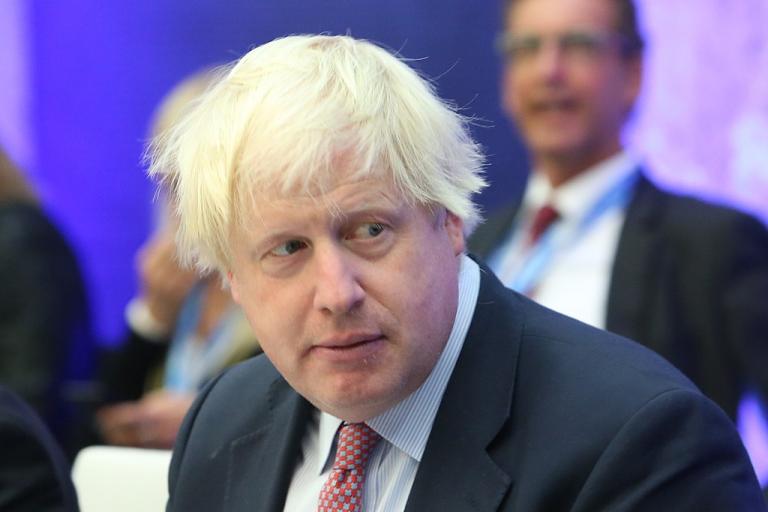Great Britain is more liberal-minded and much less religious than the USA. The surprised observers of the landslide conservative victory in the UK can’t blame evangelicals and other “deplorables” for the choice of Boris Johnson as Prime Minister, as American analysts have done to explain the election of Donald Trump, with his similar brand of conservatism. Despite the differences in the two countries, the UK election has lessons for American politics, both for Republicans and Democrats.
Like Donald Trump, Boris Johnson has unusual hair, a brash personality, and questions about his moral character. Both are also champions of a brand of conservatism that champions the working class, and promotes economic and cultural nationalism. (A big difference, though, is that Johnson, who quotes ancient Greek poetry is more erudite. He also has some political experience, having served as mayor of London.)
Yes, the big issue of the UK election was Brexit (British + exit), the call to finally implement the nation’s earlier vote to leave the European Union. But Brexit itself involved similar issues to Trump’s policies: concern about uncontrolled immigration, opposition to globalism, a reaction against the rule of remote bureaucrats, and the conviction that Great Britain and the United States have national identities that need to be preserved.
But the UK election was also about the strategy of the opposition Labour Party, which had its biggest loss since the 1930s. Labour had decided to repudiate the moderate stance the party stood for under Prime Minister Tony Blair, the friend of George W. Bush and America’s ally in the Iraq War. Instead, Labour went all in with woke progressivism, identity politics, and overt socialism. The head of the party, who would have become Prime Minister if the party took enough parliamentary votes, is Jeremy Corbyn, who combines Bernie-Sanders type socialism with Elizabeth-Warren type identity politics.
And the British public decisively repudiated Corbyn and the hard-left version of the Labour Party. The anti-Labour vote was far more than the anti-Brexit vote. Many districts voted for the Conservatives for the first time in their history. And, apparently, many of the former-Labour voters were specifically fed up with Corbyn and what he stands for. According to one Labour campaigner, “Every door I knocked on, and my team and I spoke to 11,000 people, mentioned Corbyn. Not Brexit but Corbyn.”
A sympathetic article in The Atlantic by Helen Lewis, entitled The Lessons of Jeremy Corbyn’s Defeat says thi
Under this analysis, Corbyn is to blame for alienating Labour’s traditional working-class base, and appealing instead to metropolitan liberals. Corbyn himself is solidly middle-class and metropolitan—a teetotal vegetarian who grows marrows and represents a London constituency. His historically unpopular campaign carried strong overtones of piety, as if anyone who did not support it was morally defective. In the election campaign, he promised that schools would critically teach Britain’s colonial past, and his government would seek to atone for British imperialism. He also pledged to allow adults to self-identify their gender, and suggested that the law might legally recognize nonbinary people. Such policies are extremely popular among left-wing accounts on British political Twitter, but perhaps less interesting to swing voters in places such as Redcar, where the steelworks recently shut down under the Tory government, and where voters nevertheless switched from Labour to the Conservatives.
Federalist writer Sumantra Maitra is a student in Great Britain and in his article Boris Johnson Cracked the Code for a Reagan Coalition in Great Britain he gives a fascinating on-the-ground report of the voting.
If anything, this election just proved again that Twitter is not a country, and a majority of the conservatives and moderates do not use or are not strongly influenced by social media.
Added to that was the Corbyn effect. No matter how radicalized the universities are, traditional working-class people are patriotic. They won’t likely support a man or a woman who hates his or her own flag. Whether it’s those taking the knee in the United States, or the ones supporting Hamas in the United Kingdom, they’ve given a key lesson that Conservatives should not only remember, but implement. Loyalty to the land beneath your feet, regardless of culture, race, or background, is a uniting and winning factor.
Another important revelation was that neither Trotskyist socialism nor woke liberalism sells. As was inevitable, there is already bickering between the two factions of the left as to whose messaging flopped, but the answer, in reality, was both. The hard-left nationalized industrialization of Labour Party leader Jeremy Corbyn was a throwback to an era that simply does not reflect the reality anymore.
We don’t live in the times of Charles Dickens, and the largest class of people in the planet are the middle class, who won’t favor a complete overhaul of economic systems. The Anglo-American culture favors the “right to property.” It is in the DNA of the political system we inherit. . . .
That being said, far-left messaging was also not a winner. This election in Britain had it all, from the Liberal Democratic leader Jo Swinson saying transgender people are equal to biological women, to Corbyn pronouncing his pronouns in political ads, to the climate hysteria by the Green Party. Only one individual outright rejected such focus group nonsense, and that was Johnson.
So what are the lessons that Americans can learn from the UK election?
The Media
As with Trump’s election and a similar Conservative Party victory in Australia, the media and the expert commentators were taken by surprise. Demonizing and mocking the politicians you don’t approve of can make you miss the big picture of what is actually happening. Trump and his kindred spirits are not an aberration but a trend. The commentariat needs a different paradigm than their stereotypes about conservatives to make sense of today’s politics. Also, as Maitra says, the social media is not a reliable index of broader political and cultural attitudes.
Republicans
What wins elections is conservatism that supports the working class. The sainted Ronald Reagan pioneered working class Republicanism with his “Reagan Democrats.” This is also Donald Trump’s main constituency. Democrats–like Labour in the UK–used to be the party of the working class, but no more.
Whereas Republicans have historically been considered the party of big business, today’s populist conservatism is skeptical about big corporations–most of which, ironically, support the Democrats, wealth tax or not–and promotes the interests of farmers, factory workers, and the unemployed. The laissez faire free market libertarian absolutists are out of favor. Conservatism that promotes “the common good” has more traction today.
Democrats
If hard left woke progressivism can’t win in Great Britain, it’s unlikely to go very far in the United States. The general public, including lots of rank and file Democrats, can’t stand the political correctness, gender constructivism, and America-bashing that plays well in college towns and on Twitter, but that really puts off lots of ordinary voters.
This doesn’t mean that Trump will necessarily win re-election. He remains deeply unpopular, not only from the leftist “resistance”–whose numbers are marginal–but from ordinary Americans sick of all of the drama. If Trump loses, he will be defeated by someone perceived as a moderate who projects a return to normalcy, such as Joe Biden, rather than by a Leftist firebrand.
Photo: Boris Johnson via Wikimedia Commons [CC BY 2.0 (https://creativecommons.org/licenses/by/2.0)]













